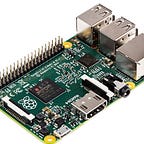In the realm of web development, choosing the right back-end framework can significantly impact your project’s success. Two of the most popular choices are Node.js and Django. Both are powerful and have their unique strengths. This article compares Node.js and Django, highlighting their key features, use cases, and performance to help you make an informed decision.
Overview of Node.js
Node.js is a JavaScript runtime built on Chrome’s V8 JavaScript engine. It allows developers to use JavaScript to write server-side code, making it a full-stack development environment. Node.js is known for its speed and efficiency, mostly due to its non-blocking, event-driven architecture.
Key Features:
- Event-Driven Architecture: This allows for handling multiple connections simultaneously.
- NPM: The Node Package Manager offers a vast collection of libraries and tools.
- Scalability: Node.js is designed to build scalable network applications.
Overview of Django
Django is a high-level Python web framework that emphasizes rapid development and clean, pragmatic design. It follows the “batteries-included” philosophy, offering a multitude of features out of the box.
Key Features:
- Admin Interface: Django comes with a built-in admin interface to manage application data.
